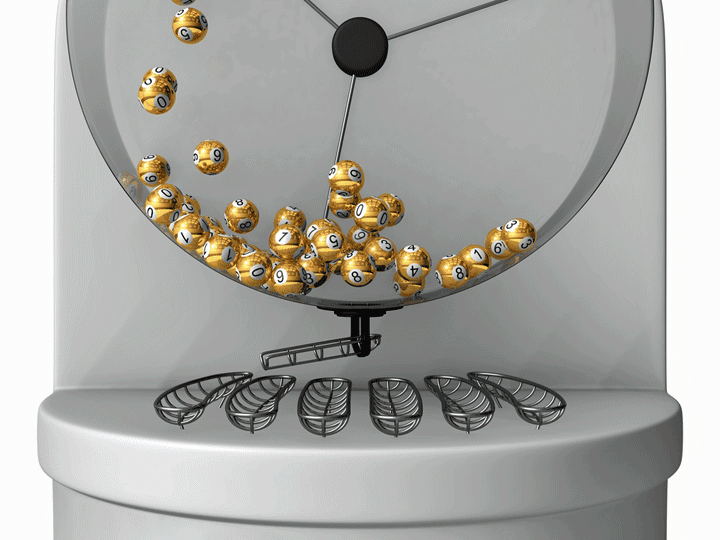
"There is nothing certain in life except death and taxes." Benjamin Franklin (1706-1790)
Excuse me? Oh, you think you got rid of it? Emigrate and ready? Well, if you emigrate from NL then you are in for a surprise. Because you know, they can't make it more fun. Our tax authorities have long arms and will think of you for another ten years and especially of your money. It is not for nothing that a survey in 2009 called inheritance tax 'the most hated tax in the Netherlands'.
Gift and inheritance tax in the Netherlands is regulated in the Inheritance Act 1956. That law used to contain the old names of the law: gift tax, inheritance tax and the (expired) law of transfer. As early as 1859, the Netherlands had an inheritance law that was rewritten as the Inheritance Act 1956. That law is still in force after many amendments.
Legislation and emigration
Article 3 of the Act contains the provisions relating to emigration from the Netherlands. This is the text:
Member 1:
A Dutch person who has lived in the Netherlands and who has died or made a donation within ten years of leaving the Netherlands, is deemed to have lived in the Netherlands at the time of his death or making the donation.
Member 2:
Without prejudice to the provisions of the first paragraph, anyone who has lived in the Netherlands and who has made a donation within one year of leaving the Netherlands to live is deemed to have lived in the Netherlands at the time of making the donation.
This is called the residence fiction. Do you see the difference?
Paragraph 1 concerns the DUTCH PERSON who donates or neglects to donate within ten years after emigration from the Netherlands. Paragraph 2 refers to non-Dutch nationals who donate within a year. In both cases, the Netherlands retains the right to levy taxes.
So if 'Jan Klaassen', Dutchman, emigrates from the Netherlands to Aland and makes gifts or goes to heaven within ten years, the Netherlands will levy gift or inheritance tax. The tax is calculated on what is donated or bequeathed minus the exemptions provided by law. You can therefore still use the long arm of the Dutch tax authorities for another ten years after emigration.
Why is that law like this, you ask! Very easy. There are countries with no or very low inheritance and gift tax and then you would emigrate to such a country at a certain age, give everything away or, whether or not according to plan, die, and the Netherlands is left behind. Because the cash book of the polder must be correct, this legislation has been created. No, not fun, but taxes are never fun…..
Think about this, and file a tax return or have it done by a tax adviser or a civil-law notary in the Netherlands. If you do not file a report, you risk a fine and a lot of misery for you and your heirs.
For special circumstances, it is best to seek help from experts. Like with 'Jan Klaassen'; he is Dutch but his partner has a different nationality and they donate to their child shortly after emigration. Then professional help is needed. This also applies if you live in a country that is also allowed to levy taxes on that money. Then sometimes reduction is possible. You also need expert help if you make a gift or omission 'free of duty'.
Finally, I would like to address a question in this blog. If you live in Aland, however long or short, and you RECEIVE a gift or inheritance from the Netherlands, you pay the duty that is normally due. In that case, the residence fiction does not apply.

The gambling tax after emigration
I recently got a question about that. There are emigrants and posted workers who keep their Dutch lottery tickets in Thailand or elsewhere. Do they owe gambling tax?
This is stated in the Betting and Gaming Tax Act (1961).
The games of chance tax is a direct tax levied on those entitled to the prizes of domestic games of chance, not being casino games, games of chance, games of chance or games of chance played via the internet.
There is nothing about the place of residence of the prize winners. If the price on the full lottery ticket exceeds 449 euros, then gambling tax will be withheld and the rate is currently 30,1 percent. Incidentally, if you have a prize in the 'State', the Dutch Lottery pays that tax; the net price is grossed up.
The tax authorities levies on the price that falls on the full lot. If you join a club with family or friends so that you bet with 20 people in the Toto, Lotto, Lucky Day and more, that group simply owes 449 percent at a price of more than 30,1 euros. A waste of money but hey, it's for a good cause, right? 😀


Interesting topic, Erik. Question: isn't it true that the recipient of a gift or inheritance is in fact the taxpayer - and if he or she is Thai and lives in Thailand, will he or she get the Dutch tax authorities after him?
Cornelis, article 36: the tax is levied on the transferee.
In the case of inheritances and gifts that are arranged through the notary, the notary will withhold and pay the tax. In other cases, the donor or heir will have to file a declaration and pay the assessment. Then nationality does not matter and neither does residence.
But here, too, you feel like a bald chicken… Even if you are unwilling, it is difficult to collect, especially if the countries have not agreed on assistance. Then the tax authorities will knock on the door of the donor or the executor. Withholding the tax due at source is a sensible step, especially in the case of transferees abroad, to avoid this procedure with extra costs.
Excuse me, a typo.
In other cases, the donee or heir will have to make a declaration….
I read about it on the website of the tax authorities and there I see that the recipient of the gift remains responsible for the tax. Then it seems to me that the tax authorities, if it is not possible to collect in Thailand, can no longer turn to the donor. Or am I wrong?
Moderator: Reader questions must go through the editors.
Hi Eric,
That the state lottery pays your gambling tax is a misconception, something I have heard from various sources, with a prize of 1.000.000 (tax-free) it is in fact a main prize of 1.330.000 of which, for the sake of convenience, all the tax due has already been paid. levied and therefore 1.000.000 is paid out to the lucky person... it can be calculated exactly to the cent. I heard that this is normal practice at the Staatsloterij with all prizes. I don't know the source anymore...
Erik writes that the net price is browned, right?
There is a new inheritance tax law since this year …https://www.belastingdienst.nl/wps/wcm/connect/bldcontentnl/berichten/nieuws/nieuwe-regels-belastingrente-erfbelasting-vanaf-2021 ……. Maybe something has changed??
I answer the three questions here.
Cornelis, see Article 46 of the Collection Act. You can find it at laws.nl collection law. Hence my suggestion, to withhold and reserve the tax at source.
John, the net price is multiplied by 1000/699 and then the gross price comes into play. Of that 30,1% is the tax. The price is therefore higher as you say and with that the price space becomes smaller. So you actually pay for it yourself…
Mia, that's not a new law, just a tax interest regulation.
Thank you, Erik, for this reference. It's clear to me now!